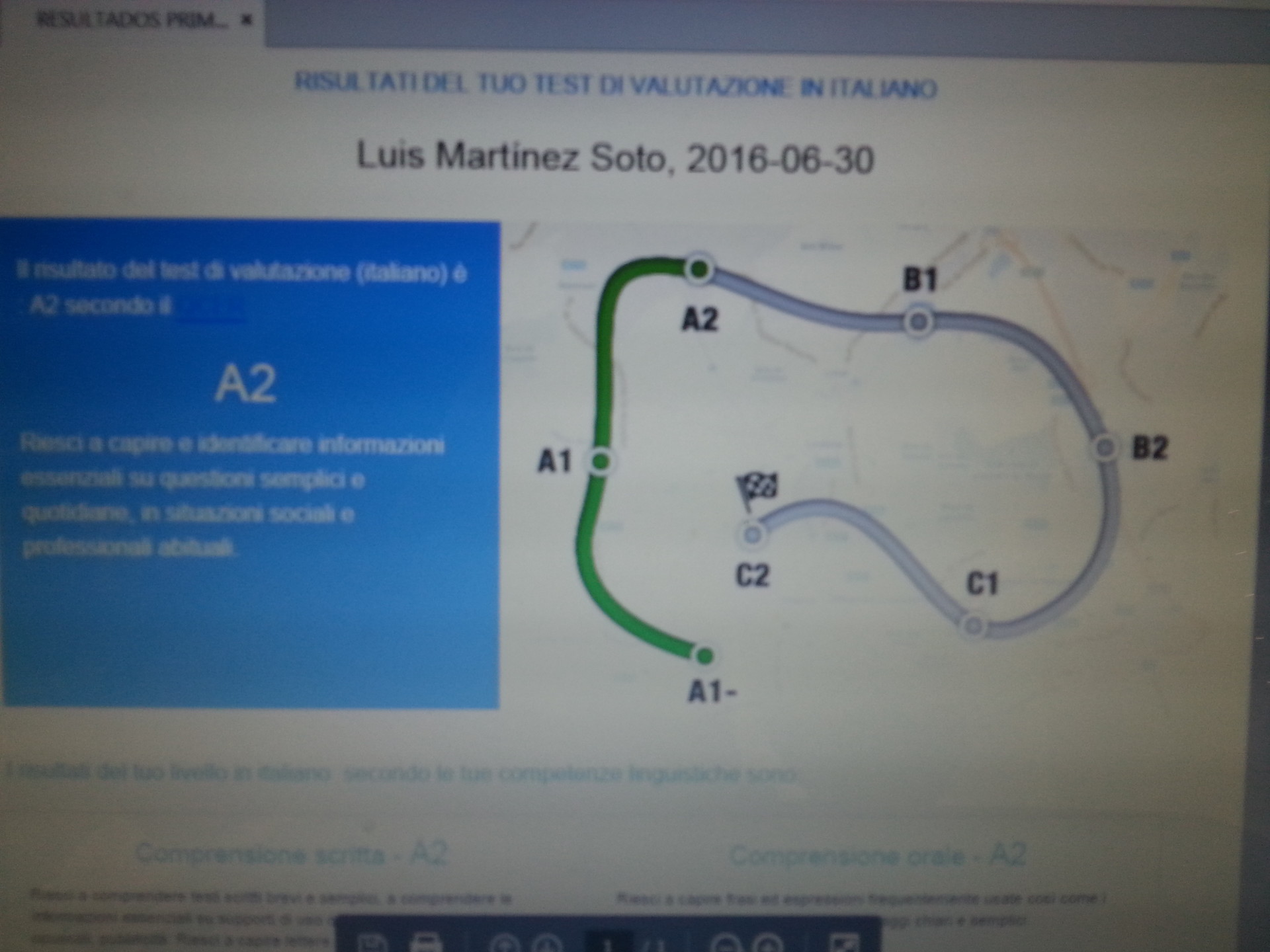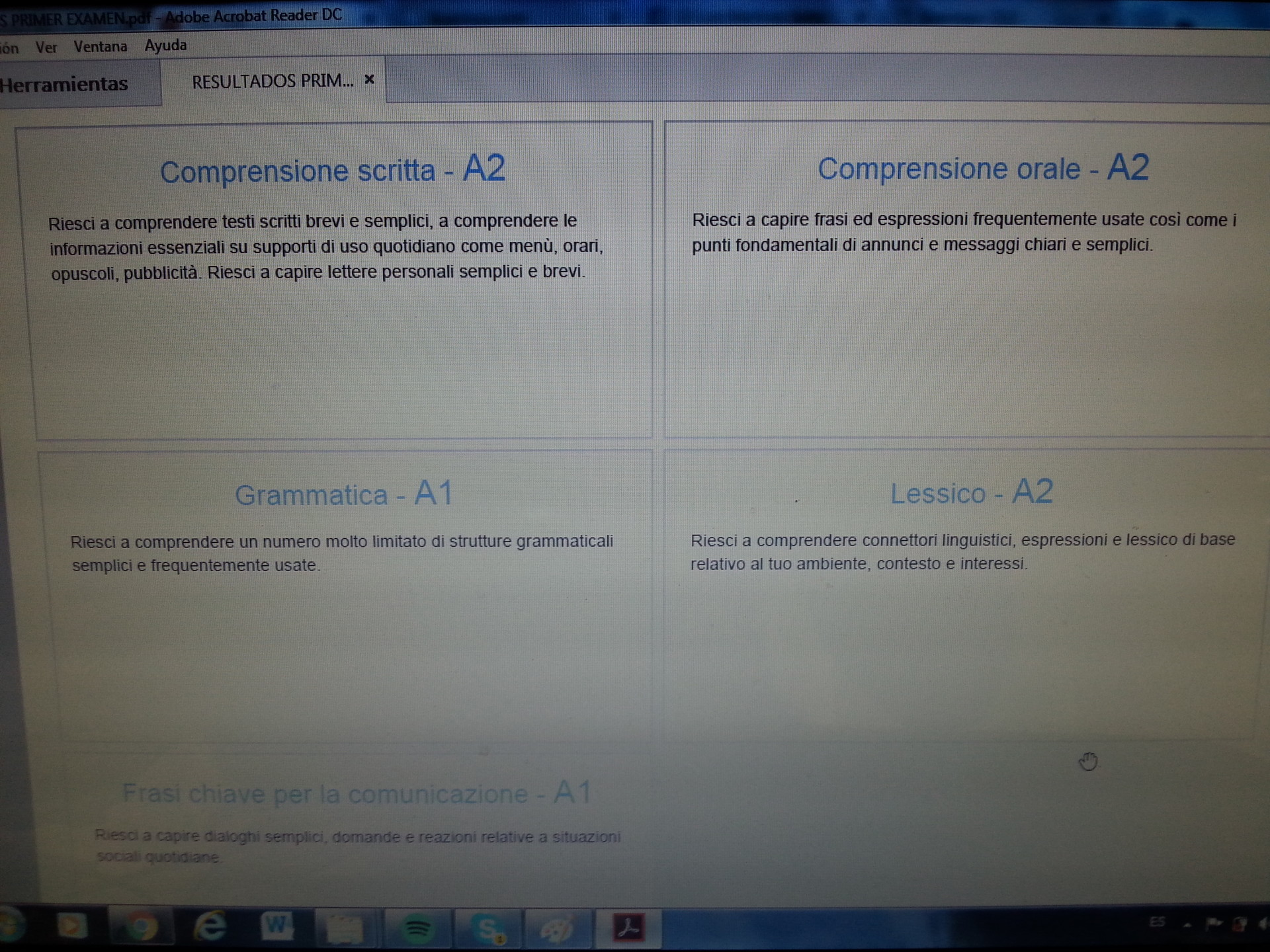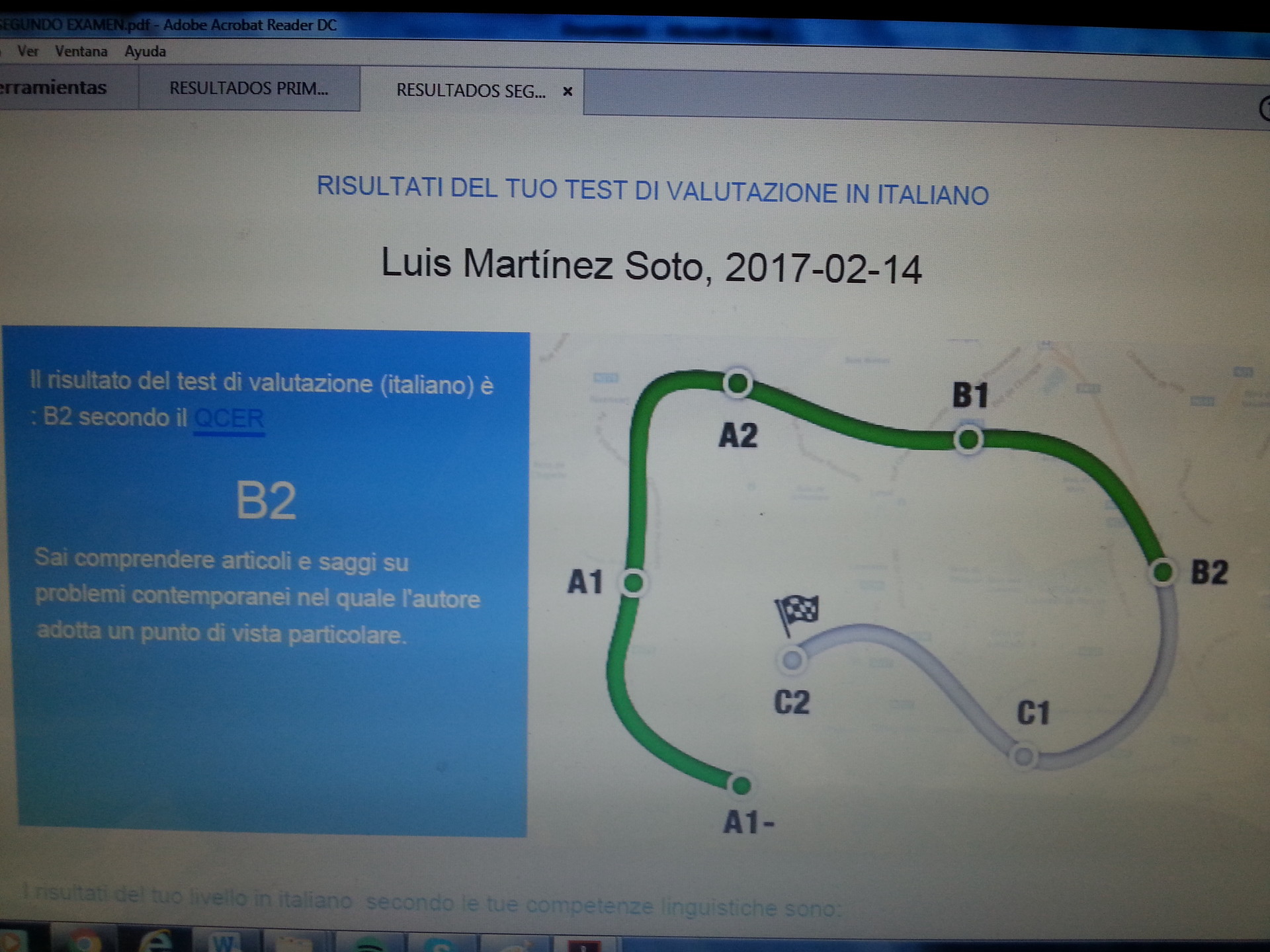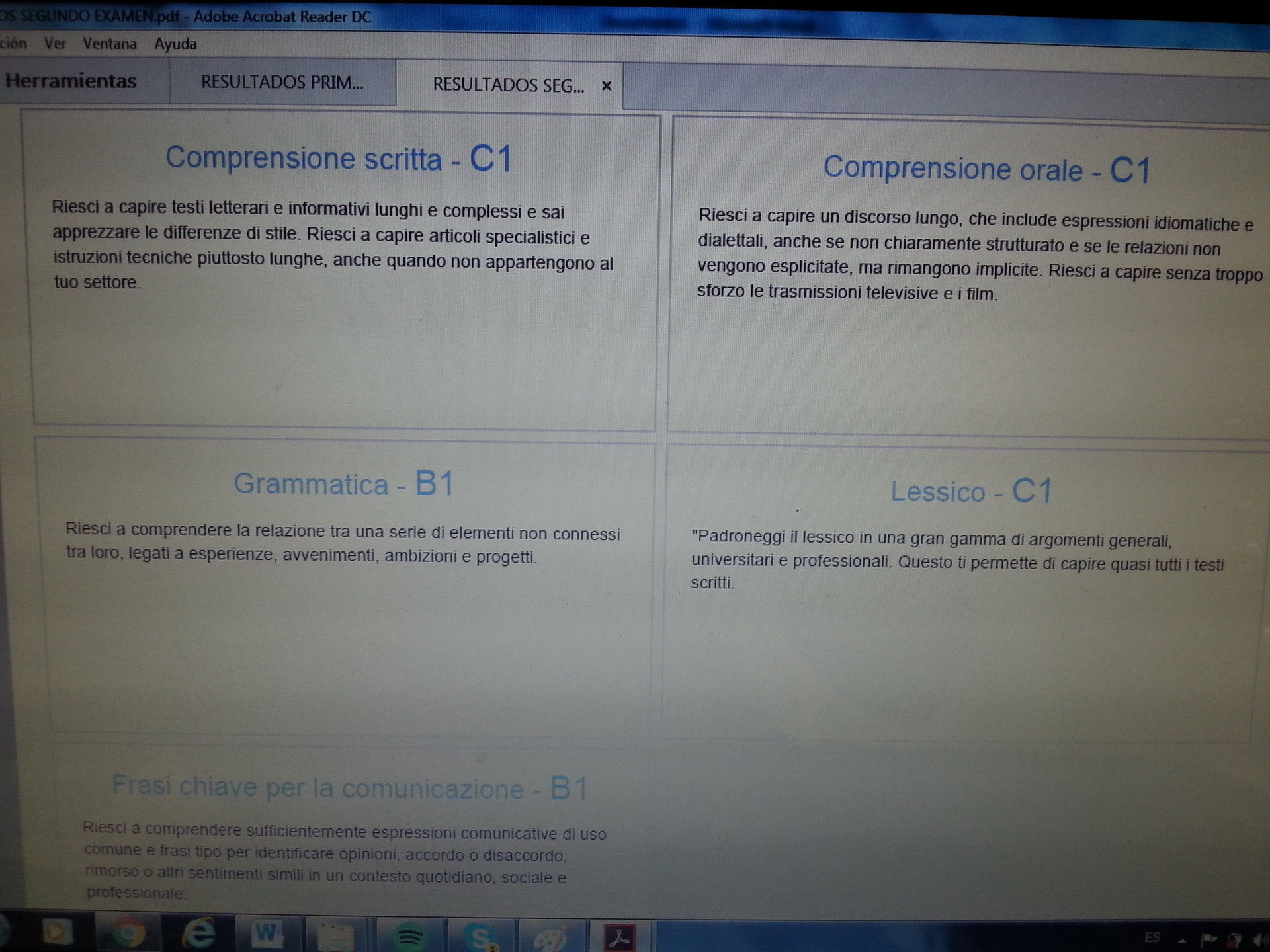Learning a language in 6 months.
Is it possible to learn a language in 6 months?
The quick, simple answer is yes, but there's a lot more to it. People often think going abroad will solve their language problems in a matter of seconds. They think, without needing to struggle or attend classes, they'll pick up the language without even realising. On the one hand they're right. But on the other they're totally wrong.
They have all the right in the world to say traveling abroad helps, of course it does. But we can't leave it at that, we have to do much more. I'll tell you my experience, what I did and what I had to give up in order to obtain a good level in the language.
My linguistic experience.

Before coming to Milan I took an A1 course at the University of Murcia. I am not the biggest fan of language schools, courses and all that surrounds it, but everyone's got to find their personal way of learning. A school will help you acquire a base in the language, learn grammar and progressively start to use the language accurately.
I came to Milan with a very clear goal. I had to learn languages. This goal would mean I had to forego things that were pretty difficult to go without, like being part of a friendship group comprised of Spaniards. Before I started my experience, I thought this would be easy peasy. But it wasn't. The Spanish people I was met were all really great people, I'm sure that would be the same for you. You're abroad, so the first people you get to know are surely going to be those who speak your language. It's easier to communicate with them, you instantly have things in common, and they make you feel at home. This happened to me. I found a residence were a lot of Spaniards lived and I thought each and every one of them was great.
Do you have to avoid people from your own country to learn languages? The answer is a resounding no. It is not about avoiding people from your home country. I've been out with my Spanish friends on several occasions, I have a very good relationship with all of them etc. But what you cannot do is never leave the safety of this group of friends who are from the same country as you. If your erasmus"mission" is to learn a language, you cannot be surrounded by people who speak your mother tongue 24 hours a day, 7 days a week. It's not easy by any stretch of the imagination. I assure you, I found it hard not to be formally part of these groups, although I'm grateful they always treated me like one of the gang when I went out with them. I don't have a single word of complaint about the "U22 crew", they are a group of crazy, cool people and I know that I'll stay in contact with many of them. I know they understood my position.
Language immersion.
As I just said, it's very important that you immerse yourself in the culture and everything that that entails. Here are some of the < strong>guidelines I have followed to fully immerse myself:
- Italian and English music. When I arrived, I deleted all my Spanish music (although I kept some artists I simply couldn't live without) and filled my phone with Italian and English music.
- avoid watching films in in your mother tongue. You'll pick up parts of the language little by little, so soon you'll start to understand more than you think. Depending on your level I would suggest you watch with subtitles ( in the target language), or watch with no subtitles at all. Personally, I watched films in Italian without subtitles, and English-language series with English subtitles.
- Get ready to talk to native speakers! You're going to be in Italy, in Poland or wherever for X amount of time. You have an amazing opportunity to take advantage of everything around you. It would make me laugh a little if you hired a native speaker to "practice the language" once you returned to your home country.
- Read. Being at university will require you to read in itself. Reading allows us to acquire more vocabulary and to get a more complete picture of the language. I remember the first book I read in Italian. I spent an hour trying to translate what I was reading. Now I can read Italian almost like I can read my mother tongue, Spanish.
- Get stuck into it. If you're walking down the street and see a word and you don't know, look it up or ask your friends. If you make some sense of everything around you, everything will start to piece together like a puzzle.
Enjoy yourself! Don't treat it like a degree, or a challenge. Don't view it as an academic thing. I've enjoyed it since day one. Laugh when you fail, learn to communicate with those around you, chatter nonstop - you'll end up getting better results.
Ask people to correct you.
When you are speaking in another language and happen to be speaking to someone who is expert in that language, it's so important you make it clear you don't care if they correct you when you make a mistake. In fact, you want them to.
Italian and Spanish, for example, are very similar. So often, even if you don't express yourself correctly, the other person will understand you. If you don't make it clear that you want to be corrected all the time, you'll continue to make the same mistakes over over again, thinking that you're speaking correctly.
Mar Cel, Luca, Joao, Simone and a long list of other people have been victims of this themselves. It was fairly annoying asking them to correct me, but they agreed to. Eventually the time came when they no longer had to correct me as much, so we could have a conversation with much more fluent language. In the long run, the knowledge will settle.
Social networks and technology.
I put my mobile in Italian a long time ago, when I arrived. I also changed my facebook to English. This way, I would always be in contact with new words, and eventually these words would no longer seem as strange. Sometimes I hear a word and I recognise it just because I've seen it in settings, in some app description or something of the like.
Technology in itself has many advantages and you can't stress its brilliance enough when it comes to learning a language. There are apps like duolinguo (if you want to start a lanuguage from scratch and learn the basics), ankidroid, electronic dictionaries etc. We're in the modern age now. 0, you can learn for 5 minutes a day while on the bus, on the subway or waiting for a friend.
Can you learn a language in 6 months?
Of course you can! You learn something new every day, especially if you're in another country.
At the beginning of my erasmus experience I had to do an "online Linguistic Support" level test, which is carried out by all erasmus students if I'm not mistaken. Don't worry, this test is purely informative. My results were as follows:


During my Erasmus year I had a clear intention to learn languages, yet I didn't feel that I had been trying harder than I usually did to do so. The good thing about living in another country is that having a beer with a German can be an English lesson, and going to the supermarket, going out for a coffee or going out clubbing can be an Italian lesson. If you get it right, you'll constantly be doing productive things while experiencing the best year of your life. This is the best experience of mine. These are my results at the end of my Erasmus experience(6 months):


So go for it! I'm sure you'll succeed! You'll learn a language while having a great time!
Photo gallery
Content available in other languages
- Español: Aprender un idioma en 6 meses.
- Italiano: Imparare una lingua in 6 mesi
Want to have your own Erasmus blog?
If you are experiencing living abroad, you're an avid traveller or want to promote the city where you live... create your own blog and share your adventures!
I want to create my Erasmus blog! →








Comments (0 comments)